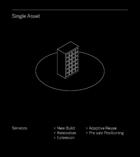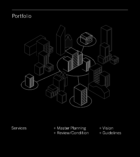Our team of experienced carbon experts has developed a system for evaluating and measuring whole life carbon emissions clearly and comprehensively—from the very start of a project and throughout its life cycle. This standalone service gives our clients a holistic view of a project’s environmental impact.
From targets to measurable outcomes
The built environment is responsible for nearly 40 percent of carbon emissions globally. While the industry has for decades focused on reducing operational energy and related carbon emissions, whole life carbon is emerging as crucial in the way buildings are designed, constructed and renovated to go further in the pursuit of reducing the built environment’s overall carbon impact.
Unlike operational energy and associated carbon emissions which can be to a certain extent improved once a building is in use, embodied carbon emissions cannot be rectified at a later date.
Progressive planning authorities now request embodied carbon data at the earliest stages of major projects and require this to be verified once buildings are constructed. Building policies and industry standards, which set requirements for energy performance levels, are becoming more ambitious through science-based targets. Investors are increasingly prioritizing environmentally-focused evaluations to inform their investment decisions.
Drawing on a global team with unparalleled expertise, SOM has launched Whole Life Carbon Consulting, a new service that empowers our clients in the real estate sector to meet their project’s predicted, operational energy and embodied carbon targets at construction completion and in-use, while also fulfilling their ESG requirements.





